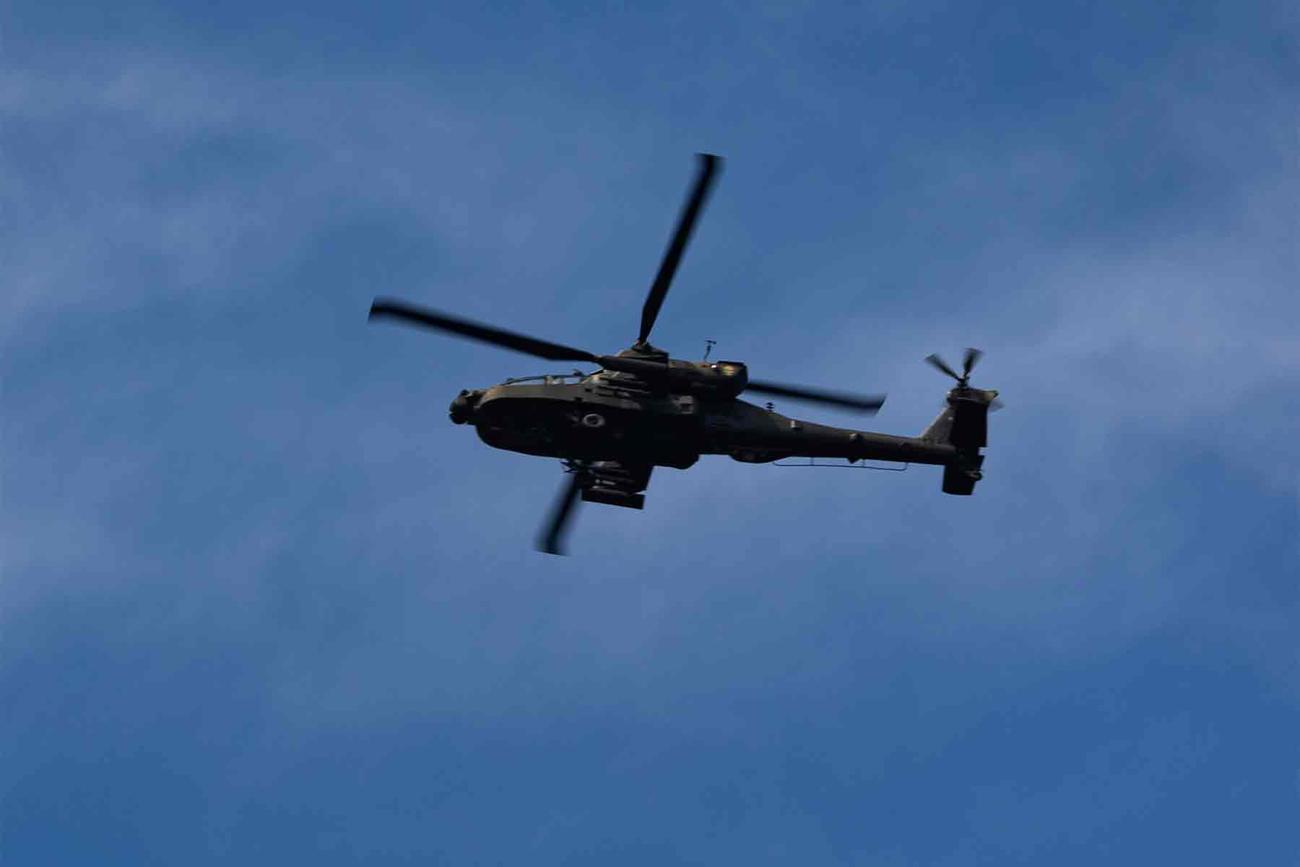
A Mississippi National Guard AH-64 Apache attack helicopter crashed in the northern part of the state near Booneville on Friday afternoon, a service component spokesperson confirmed.
Two Guardsmen who were on board were killed in the mishap and safety crews were at the scene, according to a statement from Mississippi Gov. Tate Reeves. The names of the two service members were being withheld until next of kin could be notified.
The Mississippi crash is yet another deadly mishap involving military helicopters, with many of those incidents involving the National Guard — a service component grappling with issues involving funding and maintenance.
Read Next: DC-Area Army Retention Is Good, and It Could Be a Bellwether for the Rest of the Service
“Mississippi will always be grateful for their service and we will never forget them,” Reeves said in the statement.
The news comes after a Utah National Guard AH-64 Apache helicopter crashed near Salt Lake City last week. The two pilots survived, a rarity in rotary crashes. In March last year, the Army saw one of the deadliest training incidents in its history in which nine soldiers died in a crash involving two Black Hawk helicopters out of Fort Campbell, Kentucky.
The Army National Guard in particular also has had a large number of incidents over the past decade, with at least 28 of its troops killed in helicopter crashes as of April, according to a report from the Government Accountability Office.
Among the other incidents, two Tennessee National Guard soldiers died in a Black Hawk crash in February; a 2021 Black Hawk crash killed three New York Guardsmen; and a 2015 Black Hawk crash killed four Lousiana Guard soldiers and seven Marines.
In addition to the Guard covering much of the military’s missions in the Middle East and Africa, it relies heavily on helicopters for its domestic missions, particularly disaster relief and search and rescue.
The GAO’s report last year found significant issues in the National Guard, particularly a lack of flight hours among its pilots, who need a minimum of 6.77 hours a month, with nine hours considered optimal. Between 2017 and 2019, the bulk of Guard pilots flew around five hours per month.
However, the National Guard is not alone in its issues with helicopters. Investigators this week determined a parts failure occurred during an Osprey crash in Japan in November. The crash killed all eight airmen on board. Earlier this month, five Marines died when their CH-53E Super Stallion crashed in Southern California.
Editor’s note: This story was updated with the status of the two crew members on board.
Related: In Wake of Fatal Black Hawk Crash, Renewed Scrutiny of the Helicopter’s Safety Record








